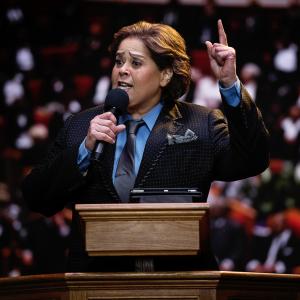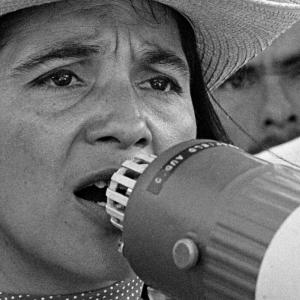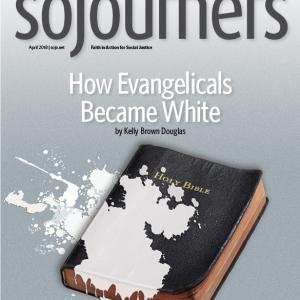Posts By This Author
Letters to the Editor
Unfounded Intimations?
Responding to the recent Sojourners article by Ryan Rodrick Beiler (“Undeterred by the Facts,” February 2017) regarding the arrest and detention of World Vision Gaza Director Mohammed el-Halabi, I would like to clarify the following pertinent issues.
El-Halabi has been indicted on charges of membership in a terror organization, use of material goods for terror, providing intelligence and material aid to the enemy in wartime, and illegal possession of arms and ammunition. If a plea deal will not be agreed between the sides, the Israeli state prosecution will present evidence on all these charges in a manner consistent with due process, fair trial, and maximum possible transparency given security considerations.
Hence, it is hard to understand Rodrick Beiler’s conclusion that Israel is “undeterred by the facts.” The case will move forward based only on evidentiary fact. Beiler also questions why Israel would level such charges against a Christian aid organization. The only reason is that, unfortunately, due to lack of adequate oversight, the charges appear to be true. This is probably why Western donor countries have suspended aid to World Vision Gaza operations pending trial.
We also reject and totally deny the unfounded intimations in Rodrick Beiler’s report that el-Halabi has been mistreated in Israeli custody. This is not the case. El-Halabi has also had access at all times to professional medical care and has been visited by his attorneys and family.
Itai Bardov
Embassy of Israel
Washington, D.C.
Ryan Rodrick Beiler Responds:
Itai Bardov writes at length about the fair trial that Mohammed el-Halabi will be granted by the Israeli legal system. He then declares that “the charges appear to be true.” This is consistent with the Israeli foreign ministry’s campaign, as described in my article, to hype el-Halabi’s presumed guilt long before due process has had the chance to take its course.
Recent and extensive documentation by international, Israeli, and Palestinian human rights organizations (Amnesty International, Human Rights Watch, B’Tselem, Al Haq, and others) has indicated routine use of torture and other forms of abuse of Palestinians within the Israeli legal system, adding credibility to el-Halabi’s allegations of such treatment.
Regarding el-Halabi’s alleged crimes, and the claim that “Western donor countries have suspended aid” to World Vision, I would direct Bardov to the recent investigation conducted by the Australian government’s Department of Foreign Affairs and Trade, which “uncovered nothing to suggest any diversion of government funds” on the part of el-Halabi.
While it is doubtful that the Israeli legal system will offer el-Halabi a “fair trial and maximum possible transparency,” as Bardov claims, it is certain that World Vision, the Australian government, and the international human rights community present a very different narrative from that offered by Netanyahu’s right-wing Israeli government. Whom will you believe?
Correction: Our May 2017 issue credited climate change research to the Yale Program on Climate Change Communication. The surveys were actually a partnership between George Mason University’s Center for Climate Change Communication and the Yale program.
“On the other hand…” Write to letters@sojo.net or Letters, Sojourners, 408 C Street NE, Washington, DC 20002. Include your name, city, and state. Letters may be edited.
Letters to the Editor
Unchaining Hope
Thank you for uplifting one of North America’s most prophetic and inspirational persons of our time, Daniel Berrigan, SJ (“The Unchained Life of Daniel Berrigan,” August 2016). He was one of the most hopeful people for change in a time and an era when many of us felt little hope for change in the status quo. I never met him personally but was inspired by both who he was as a person and his commitment to a theology of personal involvement and activism for peacemaking.
John Fogleman
Ontario, Canada
Shame and Blame
Jim Wallis’ analysis of “intersectionality” (“The Categories That Divide Humanity,” July 2016) felt to me like an attack on local, traditional cultures, particularly those that are “white.” As a lifelong rural pastor, I know well the propensity of rural communities toward ethnocentrism. And within the context of American society, all white traditional cultures certainly bear the burden of racism. But the solution is not to dismantle all local, traditional cultures, but to fashion communities that value their heritage along with the heritage of all other cultures. Wallis’ shame-and-blame language not only fails to effect positive change in local, traditional cultures but also may well be the kind of “politically correct” discourse that drives traditional “whites” to embrace political demagogues.
S. Roy Kaufman
Freeman, South Dakota
New & Noteworthy

Courtesy of disturbingthepeacefilm.com
Choosing a Different Way
The documentary film Disturbing the Peace describes the path former Israeli soldiers and Palestinian fighters took from armed conflict to nonviolent peace activism, resulting in the creation of Combatants for Peace. A model for overcoming polarization and rejecting violence, in an unlikely place. disturbingthepeacefilm.com
Faith Remix
Author Melvin Bray presents a creative, questioning, culturally engaged approach to our sacred stories as a path to a stronger, more just, and loving faith. Better: Waking Up to Who We Could Be is a resource for Christians “for whom uncritical certitude is no longer working.” Chalice Press
Displaced People
Global Migration: What’s Happening, Why, and a Just Response explains key issues linked to contemporary migration and practical responses, guided by principles of Catholic social teaching. By Elizabeth W. Collier and Charles R. Strain with input from Catholic Relief Services. Anselm Academic
Prophets of Profit
In Brand® New Theology: The Wal-Martization of T.D. Jakes and the New Black Church , Paula L. McGee encourages pastors and scholars to see prosperity churches as a formidable force. She explores such churches’ troubling interweaving of commerce and faith and how they disempower their majority-female congregations. Orbis Books
New & Noteworthy
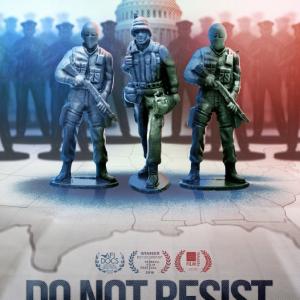
Image from IMDB.com
Forcing the Law
Do Not Resist , the 2016 Tribeca Film Festival’s Best Documentary winner, directed by Craig Atkinson, is a critical glimpse into the militarization of policing in the U.S. Where will hyped-up police training, battle armor, weaponry, and surveillance technology take us? Vanish Films
Inquiring Minds
Wary of science, or seeking a way to engage those who are? How I Changed My Mind About Evolution: Evangelicals Reflect on Faith and Science gathers stories from pastors, biblical scholars, theologians, and scientists. Edited by Kathryn Applegate and J.B. Stump. IVP Academic
Just Insights
In Radical Dharma: Talking Race, Love, and Liberation, Rev. angel Kyodo williams, Lama Rod Owens, and Jasmine Syedullah are igniting conversations in Buddhist communities around the country about the legacy of racial injustice and white supremacy in their religion. North Atlantic Books
Worldly Prayer
Through diverse writers and his own experience, Orthodox priest Michael Plekon looks beyond the formal and liturgical in Uncommon Prayer: Prayer in Everyday Experience. What are the permutations of the “Prayer of Pierogi Making”? Why should we not fear the “Prayer of Darkness”? Notre Dame Press
Seven Elements of Just Peace

Ivonne Wierink / Shutterstock
In April 2016, Roman Catholics from around the world gathered at the Vatican to discuss how the church might embrace the principles of nonviolence and just peace more deeply (see "Game Changer?" in the December 2016 issue of Sojourners.)
And what does "just peace" include? Here are seven key principles:
Just cause: protecting, defending, and restoring the fundamental dignity of all human life and the common good
Right intention: aiming to create a positive peace
Participatory process: respecting human dignity by including societal stakeholders—state and nonstate actors as well as previous parties to the conflict
Right relationship: creating or restoring just social relationships both vertically and horizontally; strategic systemic change requires that horizontal and vertical relationships move in tandem on an equal basis
Reconciliation: a concept of justice that envisions a holistic healing of the wounds of war
Restoration: repair of the material, psychological, and spiritual human infrastructure
Sustainability: developing structures that can help peace endure over time
Adapted from “What Kind of Peace Do We Seek?” by Maryann Cusimano Love, associate professor of international relations at the Catholic University of America, in Peacebuilding (Orbis Books, 2010).
Letters to the Editor
A Red Flag?
Regarding the Episcopal church called “The Cathedral of the Confederacy” (“Robert E. Lee Worshipped Here,” by Betsy Shirley, April 2017): Token efforts of repentance such as the removal of the Confederate flag will not suffice; full biblical repentance requires massive restitution in order to repair the enormous oppression and damage done to African-American people over the centuries.
Lowell Noble
Riceville, Iowa
Spoiler Alert
It’s always great to read about an entrepreneur who shows that justice can be good business (“Grocery Store Inequity,” by Courtney Hall Lee, April 2017). I was interested to read of Jeff Brown’s effort to introduce quality, convenient shopping to low-income areas of Philadelphia because I lived in the southwest Germantown part of that city for two years back in the mid-1980s. I quickly noticed, when visiting the suburbs, that perishable food was much more plentiful and varied and lasted longer than food I bought at the “supermarket” a mile away from my apartment. One can only suppose that low-income folk did not find expensive, quickly spoiled food appealing and, since they didn’t buy it, healthy, fresh food was harder and harder to get. People are too often blamed for their own poor health habits. Please keep informing about the barriers faced in the name of “just business.”
Ann Larson
Essex, Vermont
Spivey’s Still Got It
Regarding “The Trump Presidency, One Year Later,” by Ed Spivey (April 2017): I laughed so many times that my wife wanted to read it! I think humor may be one of the best antidotes for the toxicity of our times. Spivey’s humor is also self-deprecating, which is more effective than the self-righteousness I feel and express so often. Thank you, Ed, for making us laugh while reminding us that we have all sinned and come short of the glory of God.
Charles R. Crawley
Cedar Rapids, Iowa
Don’t Discount Adam Smith
Several points from your interview with Chuck Collins (“Wealth and the Common Good,” March 2017) illustrate the compatibility of his ideas with the economic system of capitalism proposed by Adam Smith. Smith sharply criticized stark economic inequalities. He advocated good wages for workers, writing that efficiencies in the division of labor made it possible to spread wealth even to the lowest ranks of the people. He advocated progressive taxation. And he argued that people were the same—no “myths of deservedness” for Smith. Finally, while Smith did not say anything about campaign finance reform, his excoriating comments on the political power of the wealthy are potent. The clear inference is that the wealthy should not have disproportionate electoral power.
For too long, American political discourse has featured a false dichotomy between capitalism and socialism. This dichotomy has been based on a gross distortion of Smith’s system. It is time to change the conversation to what kind of capitalism would be best for the country and the world: the savage capitalism of recent decades, or the capitalism with justice and equal opportunity that Smith advocated.
John E. Hill
Quincy, Massachusetts
“But what about ...?” Write to letters@sojo.net or Letters, Sojourners, 408 C Street NE, Washington, DC 20002. Include your name, city, and state. Letters may be edited.
From Just War to Just Peace

Lee Nanjoo / Shutterstock.com
1. Continue developing Catholic social teaching on nonviolence. In particular, we call on Pope Francis to share with the world an encyclical on nonviolence and just peace.
2. Integrate gospel nonviolence explicitly into the life, including the sacramental life, and work of the church through dioceses, parishes, agencies, schools, universities, seminaries, religious orders, voluntary associations, and others.
3. Promote nonviolent practices and strategies (e.g., nonviolent resistance, restorative justice, trauma healing, unarmed civilian protection, conflict transformation, and peacebuilding strategies).
4. Initiate a global conversation on nonviolence within the church, with people of other faiths, and with the larger world to respond to the monumental crises of our time with the vision and strategies of nonviolence and just peace.
5. No longer use or teach “just war theory”; continue advocating for the abolition of war and nuclear weapons.
6. Lift up the prophetic voice of the church to challenge unjust world powers and to support and defend those nonviolent activists whose work for peace and justice puts their lives at risk.
The Catholic Nonviolence Initiative is a consortium of attendees from the Rome conference and others who are advocating for a papal encyclical on nonviolence. Read the full statement at nonviolencejustpeace.net.
Letters to the Editor

Everett Historical / Shutterstock
Gimme Shelter
I was glad to see “Convicted of the Gospel” by Darlene Nicgorski included in the September/October issue. The “ministry of sanctuary” that she mentioned is an important and timely way to show the world we are Christians through our love. I have been lobbying my members of Congress and letting them know why my faith motivates my advocacy. The faith voice is crucial to immigration reform’s success and is necessary if we want any reforms to reflect our beliefs in human dignity, equality, and justice. I hope that the church around the country will join in the sanctuary movement, whether it is through advocacy, charity, or sheltering those who face the immediate threat of deportation.
Thomas Cassidy
Norman, Oklahoma
Base Values
You cannot reform the police state or our culture of incarceration (“Black and Blue,” by Ryan Hammill, September/October 2016) without a critique of our country’s values that proliferate fear and aggression. It’s how we were built and how we’ve sustained our way of life. Until then, taxpayers need to demand transparency from law enforcement, stop the flow of tax dollars to militarize them, and advocate for laws to protect citizens—especially citizens of color.
Tamara Cedre
via Facebook
Prophets On the Loose
I read about the Tennessee weapons plant protest (“An 82-Year-Old Nun Did What?” by Rosalie Riegle, September/October 2016) in the news when it happened. I appreciate the update. I did not know that the “prophets of Oak Ridge” were released. Few realize the danger we all face; nuclear war cannot be allowed to happen. Pray for peace and the destruction of these weapons.
Jim Halliday
Lafayette, Georgia
New & Noteworthy

Meaghan O'Malley / Creative Commons
Refusing Silence
The documentary film The Uncondemned tells how a group of international lawyers and activists, all under 35 when they began, fought to get the first conviction of rape as a war crime—and how Rwandan women defied death threats to testify and win justice. theuncondemned.com
Welcoming the Light
In The Light of the World: Daily Meditations for Advent and Christmas, Phyllis Zagano, writer and scholar of Catholic spirituality and women’s leadership in the church, offers incisive reflections and prayers to help readers “become quieter, slower even, pointing to the Christ who is to come.” Twenty-Third Publications
Power-Pop Prophets
The Shondes, a queer, feminist pop-punk band from Brooklyn, weave activist fervor with progressive Jewish prophetic imagination and spirituality: “Hope can anchor any strategy,” is a telling lyric. The melodious songs on their new album, Brighton, soar with violin and Louisa Rachel Solomon’s clear, strong voice. Exotic Fever Records
Home in a Strange Land
Words in Transit: Stories of Immigrants is a book of oral histories from nearly 30 immigrants and refugees who have settled in western New England. Edited by Ilan Stavans, with photographs by Beth Reynolds, it presents snapshots of the courage and gifts that flow to our country. New England Public Radio
New & Noteworthy
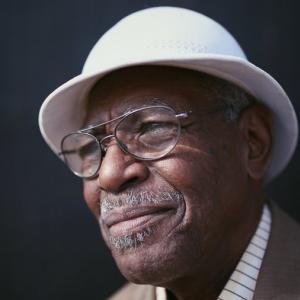
Courtesy of facebook.com/DonBryantMusic/
Silver Soul
Memphis-born Don Bryant, who is 74 but sounds decades younger, has made a throwback-yet-fresh soul album, Don’t Give Up On Love. Along with the standout, gospel-fired “How Do I Get There?” are exuberant grooves and smooth ballads on more earthly themes. Fat Possum Records
Mutual Respect
Evangelical-rooted professors Marion H. Larson and Sara L.H. Shady believe interfaith dialogue is vital—and doesn’t demand watered-down faith. In From Bubble to Bridge: Educating Christians for a Multifaith World , they offer Christians the perspective and tools to build bridges. IVP Academic
Every Day Holy
Faithful Families: Creating Sacred Moments at Home , by Traci Smith, offers 50 do-it-yourself ideas to incorporate spiritual practice into the bustle and hum of families with children. Includes activities suitable for different age levels (including the child at heart). Chalice Press
Write Me a Letter
Shortly after the 2016 U.S. election, novelist Carolina De Robertis invited writers and activists to explore themes of hope in epistolary essays. The result is Radical Hope: Letters of Love and Dissent in Dangerous Times, with Junot Diaz, Alicia Garza, Jane Smiley, Jeff Chang, Celeste Ng, Hari Kunzru, and others. Vintage
Letters to the Editor
Binary, Schminary
As a Caucasian who is passionate about race reconciliation, I was over-the-moon thrilled when I read the piece by Kathy Khang, “Opting Out of the Black-White Binary,” in the November 2016 issue. I have long advocated to move beyond the black-white binary, as it excludes so many others from entering the conversation or sharing their own struggles and experiences with racism. I can’t wait to share this with others or read the book she co-authored!
Shanna Seye
via email
New Life, Old Problems
The fact that only 20 percent of the members of Congress are women should be understood as evidence that women are not seen as intelligent and as capable of wise judgment as men (“Welcome to Post-Sexist America,” by Jim Rice, November 2016). Women possess intelligence and judgment because they are, like men, human persons.
A post-sexist America would reflect this truth in the make-up of our governing body. However, a post-sexist America would also be called upon to recognize and support women in the aspect of their humanity which men do not share—women’s ability to carry and give birth to new life. Yet in this matter America is woefully remiss. The United States ranks 61st in maternal health. The risk of maternal death is higher here than in any developed country. We rank 29th in infant mortality—behind Cuba. While seven babies out of 1,000 live births die by the age of 5 in America, only three babies out of 1,000 live births die in Singapore. Surely, these figures would change dramatically in a post-sexist America.
Tesse Hartigan Donnelly
Oak Park, Illinois
Why Not Pro-Love?
David Gushee’s article (“The Abortion Impasse,” November 2016) suggests that “reducing demand” for abortions is the only meaningful path forward for us. Perhaps we can expedite this as a people by reminding ourselves that the summum bonum, or “highest good,” as far as Christian ethics has been able to articulate it, is love. Not life. Not freedom. Love. The problem love recognizes is that to choose life or freedom sometimes means death to someone. Love maximizes both life and freedom and will also sacrifice both for love. We can only be “pro-choice” and “pro-life” by being “pro-love.”
Graham Hutchins
Port Angeles, Washington
God’s heart for justice
Thank you for having the courage to print Brandon Wrencher’s November 2016 “Living the Word.” I’m a 73-year-old white lady who didn’t begin to understand God’s heart for the poor, the oppressed, and justice until I was in my 40s. For about 20 years now, I’ve been sojourning mostly with black Christians, under black pastoral leadership, and studying a plethora of books by black authors. In the lives of my black friends I have seen the truths that Pastor Wrencher has brought to light. I’m praying that I can better articulate his concepts to my white brothers and sisters.
Carol Aucamp
St. Louis, Missouri
Clarification: The 1963 encyclical “Peace on Earth” was from Pope John XXIII, not from the Second Vatican Council as we stated in our December issue.
About Loving Thine Enemies...
LOVING THY NEIGHBOR may be one of the greatest commandments, but loving thy enemies is surely the hardest. In the past few months, we’ve seen an outpouring of the former: crowds rallying at airports to welcome refugees; churches, cities, and campuses establishing sanctuary for undocumented immigrants; courageous bystanders intervening to protect strangers from harassment and violence.
But when it comes to loving the very people who have caused real harm to us and our neighbors—for example, peddlers of fake news, white nationalists, and members of certain presidential administrations—the crowd grows thin. And understandably so: Why should we extend love to those who perpetuate a politics of hate? What would loving those people even look like?
Former white nationalist Tony McAleer has an answer. As co-founder of Life After Hate, a nonprofit that helps people leave extremist groups, McAleer has seen how small gestures of compassion can transform those consumed by hate. So when McAleer met a young veteran inching toward anti-Islam extremism, he took him to meet a local imam. “It’s incredibly powerful to receive compassion from someone you’ve dehumanized,” McAleer tells Jason Byassee in our cover story.
Of course, loving your enemies does not mean condoning their actions. Neither does it mean a disregard for the safety or well-being of those who an enemy may harm, including ourselves. Yet even with these caveats, it’s impossible to domesticate Jesus’ commandment: Seeking restoration rather than retribution for those who do evil is truly radical. As Martin Luther King Jr. put it, nonviolent enemy-love forces us to recognize “that evildoers are also victims and are not evil people.” Try thinking about that the next time you see a sound bite of your least favorite politician.
Read Jason Byassee's profile of Tony McAleer, "Confessions of a Former White Supremacist," in the August 2017 issue.
Letters
Letters to the editors from Sojourners readers.
We Cannot Rest; We Must Rest
HERE'S A PARADOX: If justice delayed is justice denied, we cannot rest while anyone suffers; at the same time, we can’t work tirelessly for justice without rest. It’s the kind of pesky conundrum we face just as we’re settling in for a night of sweatpants and Netflix: The prophets in the Bible decried those who sit on fine couches while their neighbors go hungry ... but does that mean it’s wrong to re-watch the entire season of Queer Eye when we could be doing something more productive?
In this issue, Baptist minister J. Dana Trent uses the fourth commandment (“Remember the Sabbath day, and keep it holy.”) to reframe our quandary. Through this commandment to practice “ritual rest from our labor,” writes Trent, “we opt out of tyranny and opt into care for one another.” At its heart, Sabbath rest isn’t a pause from justice work; it’s a way of disrupting a culture of what Walter Brueggemann describes as “endless desire, endless productivity, and endless restlessness.”
New & Noteworthy: May 2018
From Stage to Screen
Pulitzer Prize finalist Anna Deavere Smith brings her critically acclaimed play Notes from the Field to the screen. Based on hundreds of interviews with students, teachers, parents, and administrators, the production brilliantly highlights the disturbing U.S. school-to-prison pipeline. HBO
Love for Creation
Creation Care: A Biblical Theology of the Natural World presents practical, faithful responses to environmental issues. With scientific data and comprehensive biblical theology, Douglas J. Moo and Jonathan A. Moo invite readers to explore their relationship with creation and the Creator. Zondervan
Letters
Susan Thomas
Tucson, Arizona
New & Noteworthy
Yes, She Can
Dolores Huerta changed the course of history when she formed what became the United Farm Workers union with César Chávez. Often overshadowed by her co-founder, Huerta’s defiant resistance, struggle, and sacrifice take center stage in Peter Bratt’s captivating documentary, Dolores. Premieres March 27 on PBS. doloresthemovie.com
An Emerging Voice
Folk singer Azniv Korkejian was born in Aleppo, Syria, to an Armenian family. Relocated to Saudi Arabia and then to the U.S., Korkejian’s moniker, “Bedouine,” is drawn from the name of a nomadic group. With gentle guitar and smooth vocals, her self-titled debut album affirms her identity as a wanderer. Spacebomb
Letters
The Present Political Quagmire
The February 2018 issue raises big questions for our country and the evangelical church. The authors of “Is This a Bonhoeffer Moment?” (Lori Brandt Hale and Reggie L. Williams) and “When Seminary Becomes a Threat” (Wesley Granberg-Michaelson) rightly point out the risks of making parallels between two different historical contexts (Germany in the 1930s and 21st century America). Yet there are striking similarities, particularly the ease with which evangelical Christians, in America today and in Germany then, accepted populist movements and their nationalistic programs. In both cases, the populist forces were able to exploit societal anxieties and make a sentimental appeal to a cultural form of Christianity that served its purposes.
The slogan of the Nazified German Christians was “Germany our goal, Christ our power!” Based on a distorted interpretation of Lutheran theology, a group of theologians at the time issued a document, known as the Ansbacher Ratschlag, opposing the Barmen Declaration. It was addressed to the National Socialist Evangelical Union of Pastors and included this statement: “... we as believing Christians thank the Lord God that in this hour of need he has given our people the Fuhrer as a ‘good and faithful sovereign,’ and that in the Nationalistic Socialist state he is endeavoring to provide us with disciplined and honorable ‘good government.’” This distant mirror of attitudes—and even words—that are with us today should give Christians great concern. The vulnerability of the American church did not come about in the presidential election of November 2016. The present political quagmire has only exposed it.
Dave Shelman
Corbett, Oregon
Acknowledging Assault
I have just read “‘A Terrorist War Against Women,’” by Serene Jones (February 2018). Reading stories of sexual violence against women gives me hope that something can be done about that evil. But there is one voice that is not heard too often. It is that of sexual violence against men by male authority figures. I suspect there are many men out there who trusted a male authority figure and were assaulted. We are hurting.
Anonymous
On Rage and Apathy
IN THIS ISSUE, Victoria Newton Ford writes about Ava DuVernay’s forthcoming movie adaptation of Madeleine L’Engle’s bestselling fantasy novel A Wrinkle in Time. As in the book, Meg Murry travels through time to find her missing father. But DuVernay, who also directed Selma (2014) and 13th (2016), adds a twist. In the film, Meg and her brother, Charles Wallace, are black. For Ford, this delivers something the novel cannot: “a hero of the universe who, in our current political space and time, is afforded the least agency.” In other words, writes Ford, “Meg is an angry black girl.”
A film that depicts a black protagonist—in all her fury, pain, and love—is especially radical, Ford explains, because America has continually “sought to conscript ... black [women] into a toolbox for the country’s deliverance.” She points to the political heroization of Oprah, Michelle Obama, and the black women voters in Alabama who defeated Roy Moore’s senatorial bid.
New & Noteworthy
A Returning Voice
Songwriter Audrey Assad, daughter of a Syrian refugee, releases her first album of original material in four years. Evergreen features songs about “rebirth, the rebuilding of trust, and the discovery of joy and love.” PledgeMusic
Respect for Refugees
Artist and activist Ai Weiwei brings the global refugee crisis to the big screen through his captivating documentary Human Flow. Filmed in 23 countries, the documentary features stories of desperation, courage, and resilience and speaks to our shared humanity. humanflow.com






